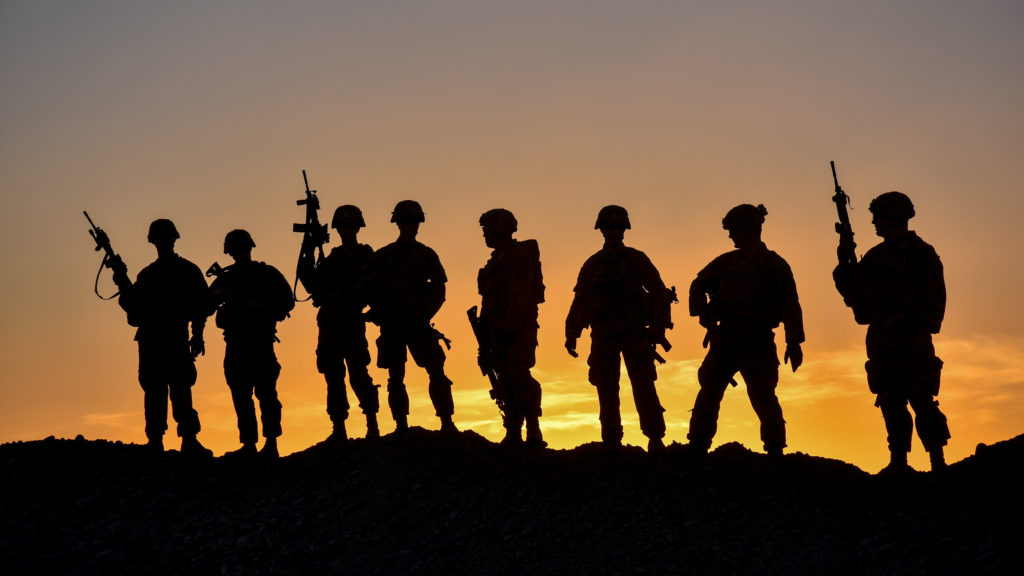Remembering Nigerian military’s fallen heroes, gallant soldiers
January 15 holds a special place in the hearts of Nigerians as Armed Forces Remembrance Day—a day set aside to honour the brave men and women who paid the ultimate price defending the territorial integrity and sovereignty of our beloved nation. These heroes, whose sacrifices we commemorate, laid down their lives in wars, peacekeeping missions, […]

FILE PHOTO
January 15 holds a special place in the hearts of Nigerians as Armed Forces Remembrance Day—a day set aside to honour the brave men and women who paid the ultimate price defending the territorial integrity and sovereignty of our beloved nation. These heroes, whose sacrifices we commemorate, laid down their lives in wars, peacekeeping missions, and counter-insurgency operations to ensure that the rest of us enjoy peace and security.
The Nigerian Armed Forces have a history of bravery and resilience, dating back to their participation in global conflicts such as World War II and various United Nations peacekeeping missions. Domestically, their gallantry has been evident in efforts to quell civil unrest, combat insurgency, and respond to emergencies. The sacrifices made by these gallant soldiers transcend the call of duty; they are a testament to their unyielding commitment to the unity and progress of Nigeria.
In recent years, the fight against insurgency in the Northeast has brought the courage and dedication of Nigerian troops to the forefront. Battling a ruthless and adaptive enemy in Boko Haram and its splinter groups, these soldiers have faced unimaginable challenges. Yet, through their determination, many communities have been liberated, and countless lives have been saved. The peace we often take for granted is built on their sweat and blood.
The courage of Nigerian troops is not only visible in combat zones but also in peacekeeping missions across Africa. From Liberia to Sierra Leone and the Democratic Republic of Congo, our military has contributed significantly to restoring peace and stability, earning Nigeria global recognition and respect.
While we celebrate their heroism, it is imperative to recognise the sacrifices that come with their service. Behind every fallen soldier is a grieving family—spouses, children, and parents—left to navigate life without their loved one. Their pain is a stark reminder of the cost of freedom and security. It is, therefore, incumbent upon the government and society to honour these sacrifices by ensuring that the families of fallen heroes are adequately cared for.
Regrettably, the welfare of Nigerian soldiers and their families has often been a topic of concern. Stories abound of unpaid allowances, substandard living conditions in barracks, and inadequate healthcare services for soldiers and their dependents. These issues not only demoralise our troops but also undermine the integrity of their sacrifices. The government must prioritize the welfare of the armed forces by ensuring prompt payment of entitlements, providing modern equipment, and upgrading living and working conditions. A well-motivated military is essential for a secure and stable Nigeria.
Citizens also have a role to play. Beyond the symbolism of laying wreaths on January 15, we must cultivate a culture of appreciation for our armed forces. This can be achieved through advocacy for better policies, supporting military families in our communities, and fostering a sense of pride in their contributions. It is disheartening to see instances of public apathy towards the sacrifices of our troops; as beneficiaries of their service, we owe them our gratitude.
Armed Forces Remembrance Day is more than a ceremonial event; it is a solemn call to reflect on the sacrifices that underpin our peace and unity. As we honour our fallen heroes and celebrate the gallantry of those on the frontlines, let us reaffirm our commitment to their welfare and ensure that their sacrifices are never in vain.
Onogwu, a public affairs analyst wrote this piece from Karu, Nasarawa State
